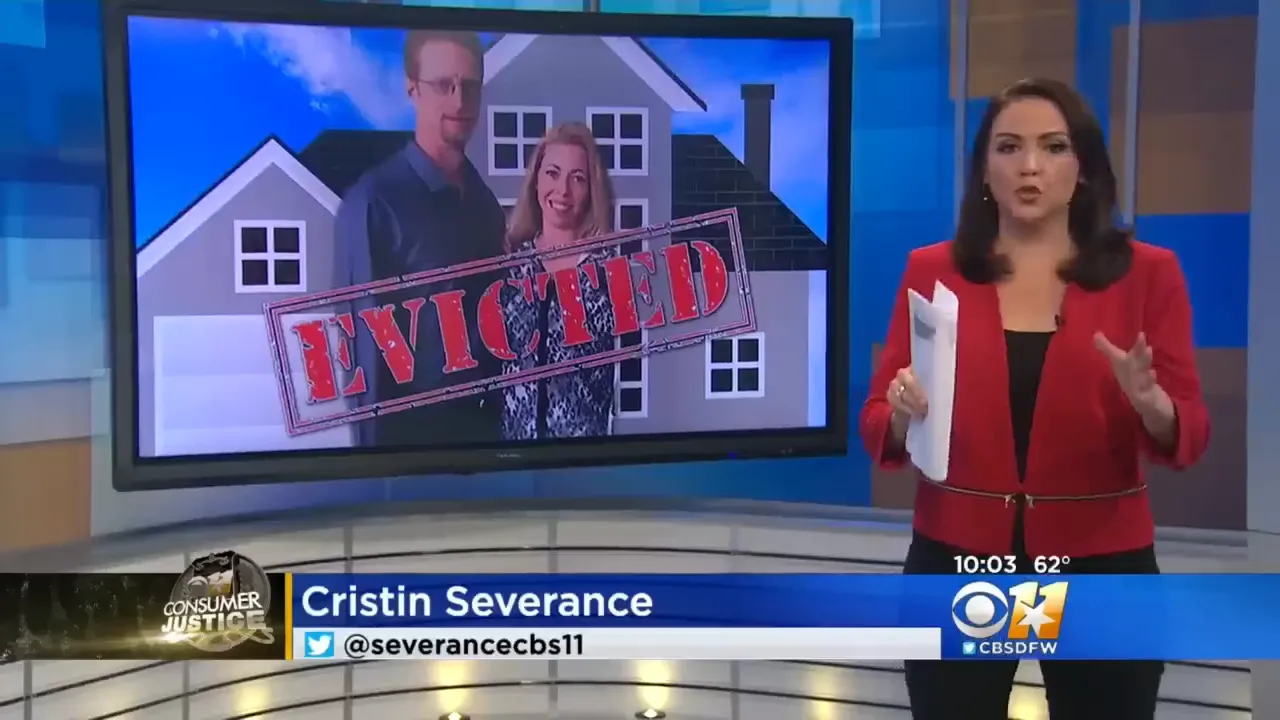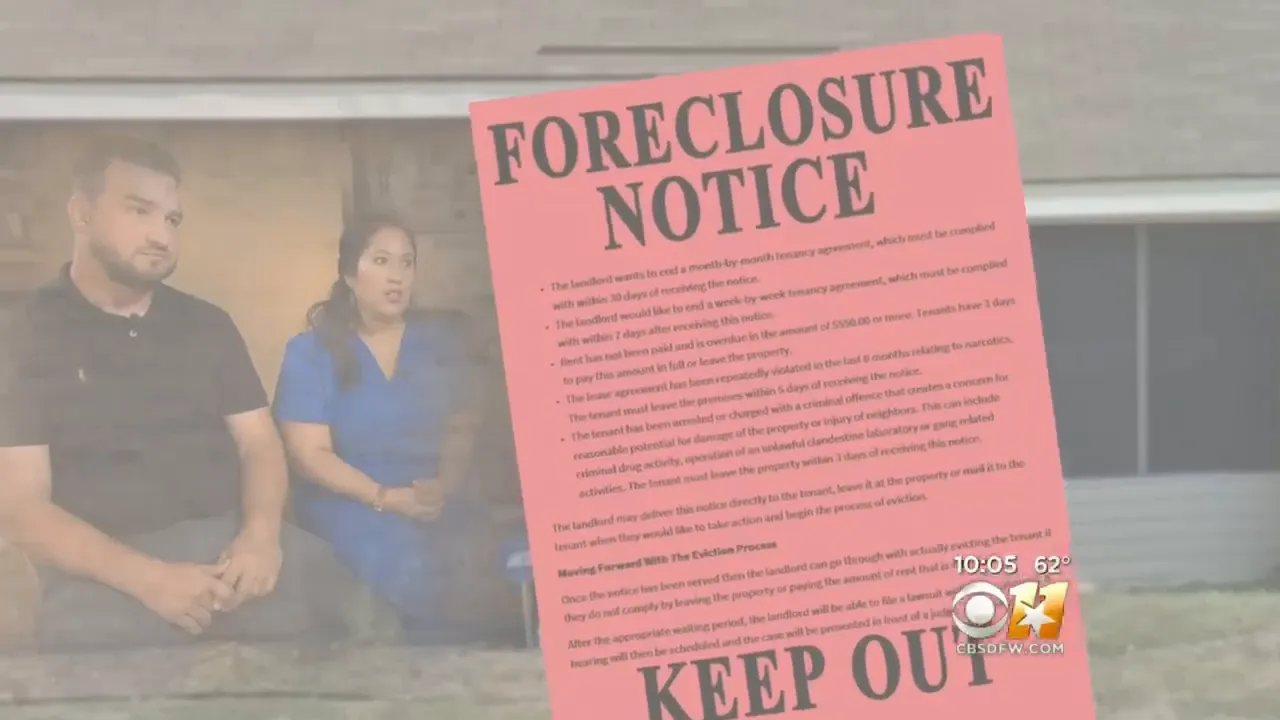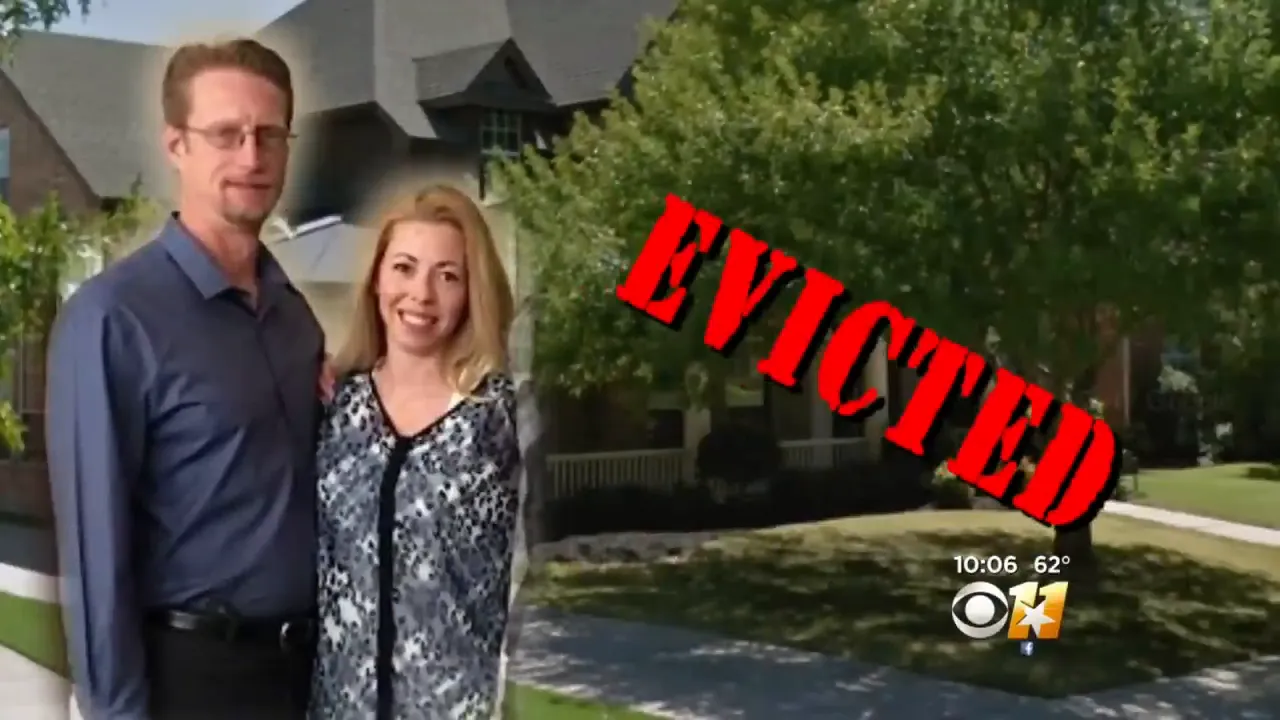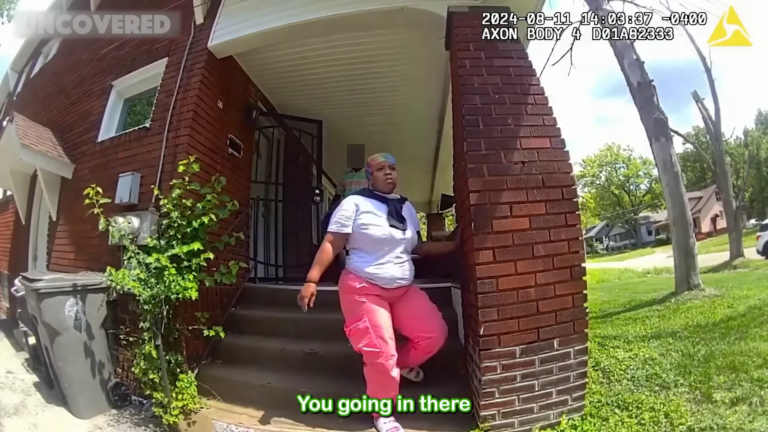In North Texas, a couple known as serial squatters have been costing homeowners thousands of dollars by moving into properties and refusing to leave. This blog explores the intricacies of their actions and the legal loopholes that allow such behaviors to persist.
Table of Contents
- Introduction to Serial Squatters
- Meet the Schwabs: A Pattern of Eviction
- The Rental Application: Deceptive Practices
- The Eviction Process: A Double-Edged Sword
- The Harrison Family’s Experience: A Cautionary Tale
- The Financial Toll on Victims
- Escalating the Situation: New Properties, New Victims
- Confronting the Schwabs: Denial and Evasion
- Legal Challenges: The Civil vs. Criminal Debate
- Future Solutions: Legislative Changes in the Works
- Frequently Asked Questions
Introduction to Serial Squatters
In recent years, the term “serial squatters” has emerged, referring to individuals or couples who exploit rental agreements to reside in homes without paying rent. This trend has become particularly concerning in areas like North Texas, where homeowners face significant financial burdens. Serial squatters often manipulate the legal system, using loopholes to prolong their stay and increase their debts to landlords.
What Defines a Serial Squatter?
Serial squatters are not merely individuals who occupy vacant properties; they are systematic in their approach. They typically have a history of evictions and employ deceptive tactics to secure leases. These practices often include providing false information on rental applications and fabricating financial stability.
- Deceptive Applications: They may falsify income, rental history, or even personal references.
- Prolonged Occupation: By leveraging the eviction process, they can remain in a property for months without paying rent.
- Targeting Vulnerable Landlords: Many prey on unsuspecting homeowners, particularly those with emotional ties to the property.
Meet the Schwabs: A Pattern of Eviction
Heather and William Schwab exemplify the behavior of serial squatters. Since 2005, they have amassed a lengthy record of evictions, with eight properties vacated in just the last two years. Their pattern reveals a troubling trend of moving into increasingly upscale homes, often leaving behind financial devastation for unsuspecting landlords.

Landlords like Christine Redick, who hoped to find a suitable family to rent her late father’s home, were drawn in by the Schwabs’ seemingly legitimate rental applications. Unfortunately, the reality was far from what was presented.
The Schwabs’ Rental Strategy
Upon moving in, the Schwabs’ true colors began to show. They provided a rent check that quickly bounced and began to offer a series of excuses. These ranged from personal tragedies to sudden job losses, each more implausible than the last. Christine quickly realized that she was being manipulated.

Despite her attempts to follow legal procedures, Christine found herself ensnared in a drawn-out eviction process that often favored the Schwabs, allowing them to remain in her property for an extended period.
The Rental Application: Deceptive Practices
The Schwabs’ rental applications were meticulously crafted to appear convincing. They included falsified income statements and glowing references, which masked their history of evictions. This practice raises significant concerns about the effectiveness of background checks in the rental market.
- False Information: The couple often provided inflated salary figures and fabricated past rental experiences.
- Exploiting Trust: They frequently presented themselves as responsible tenants, claiming military service and small business ownership.

Such deceptive practices not only harm individual landlords but also contribute to a broader distrust within the rental market. Homeowners are left questioning how to identify genuine tenants amidst a sea of potential fraud.
The Eviction Process: A Double-Edged Sword
While the eviction process exists to protect landlords, it can inadvertently empower squatters like the Schwabs. The lengthy legal procedures often provide them with additional time to reside in a property without paying rent.
Understanding the Eviction Timeline
The eviction process typically unfolds in several stages:
- Notice to Vacate: Landlords must formally notify tenants of their intent to evict.
- Court Filing: If the tenant does not leave, the landlord must file for eviction in court.
- Court Hearing: Both parties present their case, often leading to delays.
- Judgment: If the landlord wins, they receive a judgment to evict the tenant.
- Enforcement: A sheriff or constable is often required to enforce the eviction.

This process can span several months, allowing squatters ample opportunity to exploit the situation, accumulate debts, and even move to another property.
The Harrison Family’s Experience: A Cautionary Tale
The Harrison family’s experience with the Schwabs serves as a stark warning to other landlords. Initially believing they were renting to a stable family, they soon found themselves facing foreclosure notices while covering the mortgage on a home occupied by squatters.

Despite their best efforts to evict the Schwabs, the Harrisons quickly discovered that they were outmatched. The Schwabs had a better understanding of eviction laws, which they used to their advantage. With financial and emotional stakes high, the Harrisons turned to legal assistance.
The Role of Legal Representation
Hiring an attorney proved to be a crucial step for the Harrisons. They enlisted Mark Gurlin, who had prior experience with the Schwabs. This legal support provided them with the knowledge needed to navigate the complexities of the eviction process.

Unfortunately, even with legal aid, the emotional toll of dealing with the Schwabs was immense. The couple’s actions left a lasting impact on the Harrisons’ credit score and overall financial well-being.
The Financial Toll on Victims
The financial implications of dealing with serial squatters extend far beyond unpaid rent. Victims often face significant costs associated with legal fees, property damage, and lost income. The Schwabs’ history illustrates how quickly these costs can escalate.
- Legal Fees: Victims may spend thousands on attorney fees to navigate the eviction process.
- Property Damage: Many landlords report extensive damage to their properties, including neglect and abuse.
- Lost Income: While a property is occupied by squatters, homeowners lose out on potential rental income.

The Schwabs’ actions have left a trail of financial devastation, with previous landlords reporting losses totaling tens of thousands of dollars. As the cycle continues, the need for stronger protections for landlords becomes increasingly urgent.
Escalating the Situation: New Properties, New Victims
The Schwabs’ pattern of behavior continues to escalate as they move from one property to another, leaving a trail of financial ruin behind them. Their strategy is not just about finding a place to squat; it’s about targeting unsuspecting landlords who are eager to rent out their properties. Each new victim often falls prey to the Schwabs’ charm and seemingly legitimate applications.

As they relocate to increasingly upscale neighborhoods, the risks for landlords grow. Many homeowners, like Christine and the Harrisons, are left grappling with the aftermath of their deceit. The emotional toll is significant, as victims find themselves battling not just for their properties but also for their peace of mind.
Landlords often feel embarrassed and angry, questioning how they could have been so easily deceived. This situation breeds a climate of fear among property owners, making them wary of future rental agreements.
Common Tactics of Serial Squatters
The Schwabs employ various tactics to manipulate the rental process:
- False Claims: They often present themselves as responsible tenants, claiming military service or stable employment.
- Emotional Appeals: Their stories often include personal tragedies, making it difficult for landlords to deny them a chance.
- Quick Moves: They are skilled at moving quickly into new properties, often before the previous landlord has fully processed their eviction.

These tactics not only enable them to bypass scrutiny but also create a sense of urgency that pressures landlords into making hasty decisions.
Confronting the Schwabs: Denial and Evasion
Attempts to confront the Schwabs about their actions often result in a wall of denial. When faced with evidence of their past evictions and outstanding debts, Heather Schwab deflects responsibility. She claims ignorance, insisting that there must be some mistake.
This level of evasion frustrates former landlords and law enforcement alike. It highlights a troubling aspect of dealing with serial squatters: their ability to manipulate the narrative to evade accountability.
Victims often feel powerless as the Schwabs continue their cycle of deception. This dynamic creates a sense of hopelessness, as victims realize that confronting the squatters may yield little to no results.
The Emotional Toll on Victims
The emotional impact of dealing with the Schwabs can be devastating. Many landlords report feelings of betrayal and anger, compounded by the financial strain of covering their mortgages while their properties are occupied by squatters.
- Stress and Anxiety: The uncertainty of the situation leads to significant stress, affecting both personal and professional lives.
- Loss of Trust: Victims often struggle to trust future tenants, leading to an unwillingness to rent again.
As the situation drags on, many landlords find themselves questioning their judgment and ability to assess potential tenants. This emotional burden adds to the financial losses they already face.
Legal Challenges: The Civil vs. Criminal Debate
The legal landscape surrounding serial squatters like the Schwabs poses significant challenges for victims. The current system often treats these cases as civil matters, which can make it difficult to hold squatters accountable for their actions.
Many landlords feel that the laws do not adequately protect them. The Schwabs’ repeated evictions highlight a gap in the legal system, where civil judgments often carry little weight, allowing squatters to continue their practices without fear of repercussions.
The Call for Legislative Change
Lawmakers are beginning to recognize the need for reform. Discussions are ongoing about changing the classification of squatting from a civil issue to a criminal one. Such a shift could empower law enforcement to take more decisive action against individuals like the Schwabs.
- Stricter Penalties: Introducing harsher penalties for serial squatters could deter future offenders.
- Streamlined Eviction Processes: Making the eviction process more efficient could help landlords reclaim their properties faster.
These proposed changes could provide much-needed relief to homeowners struggling with the burden of squatters.
Future Solutions: Legislative Changes in the Works
As awareness of the issues surrounding serial squatters grows, so does the momentum for change. Lawmakers are actively discussing potential solutions that would address the loopholes currently exploited by squatters.
Some of the potential solutions include:
- Enhanced Background Checks: Implementing more rigorous background checks for prospective tenants could help landlords avoid future pitfalls.
- Education for Landlords: Providing resources and training for landlords on recognizing red flags could empower them to make informed decisions.
These measures aim to create a safer rental environment for homeowners and restore faith in the rental market.
Frequently Asked Questions
As the issue of serial squatters garners attention, many homeowners have questions. Here are some common inquiries:
What can I do if I suspect someone is squatting in my property?
It’s crucial to document everything. Take pictures, keep records of any communication, and consult with a lawyer to explore your options.
How can I protect myself as a landlord?
Implementing thorough background checks and requiring references can help mitigate risks. Additionally, educating yourself about tenant rights and eviction processes is vital.
Are there any legal repercussions for squatters?
Currently, many jurisdictions treat squatting as a civil issue, which can limit legal repercussions. However, changes are being discussed to address this gap.
Staying informed about legislative changes and advocating for stronger protections can help you navigate these challenges.





